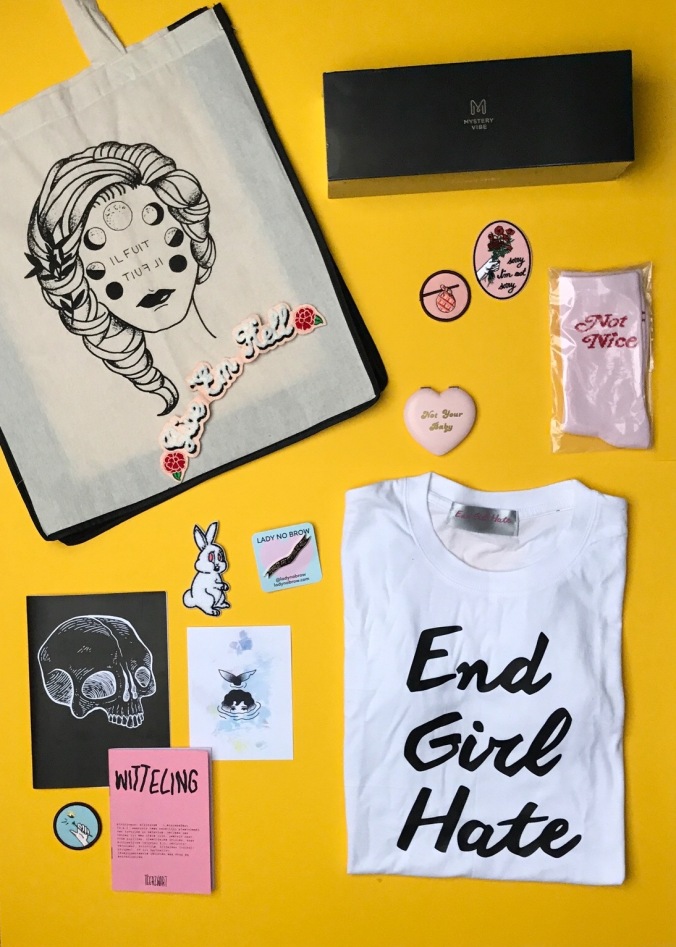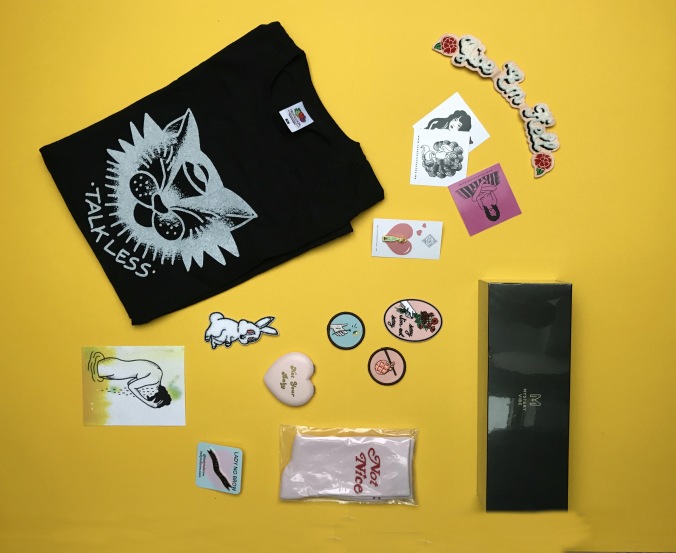Written by Hannah B.
Living in denial is usually a bad thing, dear reader. Lots of people would argue that it’s always a bad thing. I too believe that denying and being silent about issues like climate change, sexism, racism, body shaming and many other is exactly the same as acquiescing in them. However, I do admit that life was better when I denied to myself that I had been raped.
[I was eighteen years old. Me and my ex-boyfriend had been broken up for several months already, because he used to flirt with a lot of girls who all weren’t me, because he even came on to some of my friends, because he manipulated me and had a tendency to use violence. We had been living together for some months when I tried to break up with him. For months after that, he had harassed me and tried to manipulate me into getting back together with him. One day, I came into our studio, where he then lived alone for a while, to quickly pick up some clothes. He started groping me, asking me – no, demanding – to have sex with him. I refused. I angrily, heavily, forcefully refused to sleep with him and cried for him to let go of me. He ignored all of that and said that we had done it before, so why not do it one more time? His grip became tighter, the look in his eyes more maniacal and his threats more frightening. After what felt like several lifetimes, I finally gave in, tired of fearing to be grabbed and thrown against a wall or bookcase again. I said “Fine. Just do it.”, laid myself on the bed and let him do what he wanted to do. I felt completely numb and to this day, I can’t even remember what actually happened during those minutes.]
My soul was smeared across the ceiling while my body was being mercilessly attacked.
The word is out. I’ve said it, I’ve typed it. It becomes more and more real when I do that. In every reaction I get, lies a confirmation for me. “You have been sexually assaulted” “You’re right, that actually is rape” “Your feelings are valid”. The thing is: I don’t know what to do with all of this. For three years, I had been blaming myself for what happened then. After a while, I gave him permission to have sex with me. After he had squeezed my arms so roughly that they would be blue for several weeks after that day, I told him to go ahead. It was my fault. It was my fault.
[One evening this past summer, me and my mum were watching a tv-show. It shows all kinds of absurd “What If”-scenarios in a way that is supposed to be comedic. The fragment – with “What if women were frustrated?” as its title – showed a man jogging by the sea. A woman jumped from behind a sand dune with a knife and made him do all kinds of things like writing both of their initials in the sand, holding her hand and saying he’s having a wonderful time. The man cried and begged the woman to stop. I felt my throat close up and my heart stomp like a madman. Tears started to fill my entire head and it took them some minutes to start coming out. I started to sob and hyperventilate. In my eyes, this clip was plainly mocking and spitting on rape culture. Why did I get so emotional when I saw it? Maybe because it happened to me. Did it? Did it happen to me? Was it rape? Wasn’t it my fault? After all, I gave him my consent. I turned to two of my dearest friends and told them this very story. They told me one of the most important things I had ever heard and probably will ever hear in my entire life: Forced consent is not consent.]
Forced consent is not consent. Forced consent is not consent. This sentence came accompanied by another one: you have been raped. It took me years to be able to admit that to myself. For all those years I was afraid to insult real victims of sexual assault. That evening I realised that I, too, was one of them. Me too.
I talked to my mum about it until very late that night, about how I don’t want to be a victim and how I wish I had never met that guy. She assured me my feelings and thoughts were absolutely valid. She told me that if it were legally allowed for her to hurt him, she immediately would. She also told me that revenge wasn’t the way to deal with this. She told me I was strong and I would be able to battle this. She told me I didn’t have to do it alone. And I cried and let this new, horrible revelation sink in. And it sunk in deeply, thoroughly, into every vein and fibre of my body.
I have been living with this newly acquired vision on that occurrence for some months now and it takes an enormous toll on my well-being. More often than not, I feel tired, sad, angry, frustrated and the frequency and duration of my headaches have reached unknown proportions. I have the same dream that I had when I managed to break up with him three years ago: me running on a never-ending escalator with him running right behind me, grabbing me and digging his nails into my breasts and legs like a predator would claw into its prey. Living with him sitting in the guilt seat is a hundred times harder than living with myself in it. It has made him the predator and me the prey. And I hate being a prey.
I feel like a total mess on a daily basis. Sometimes I wonder if I’ll ever survive this constant gnawing at my heart and brain. But all people I value most seem to recognise the strong person my mom was talking about, that one night. They frequently praise me for being powerful and assure me that I’ll get out of the deep pit I have been sinking into and am now stuck in. I should probably believe what they have so say about me. I’m even quite sure that someday, I will.
I will, dear reader. Me too.




